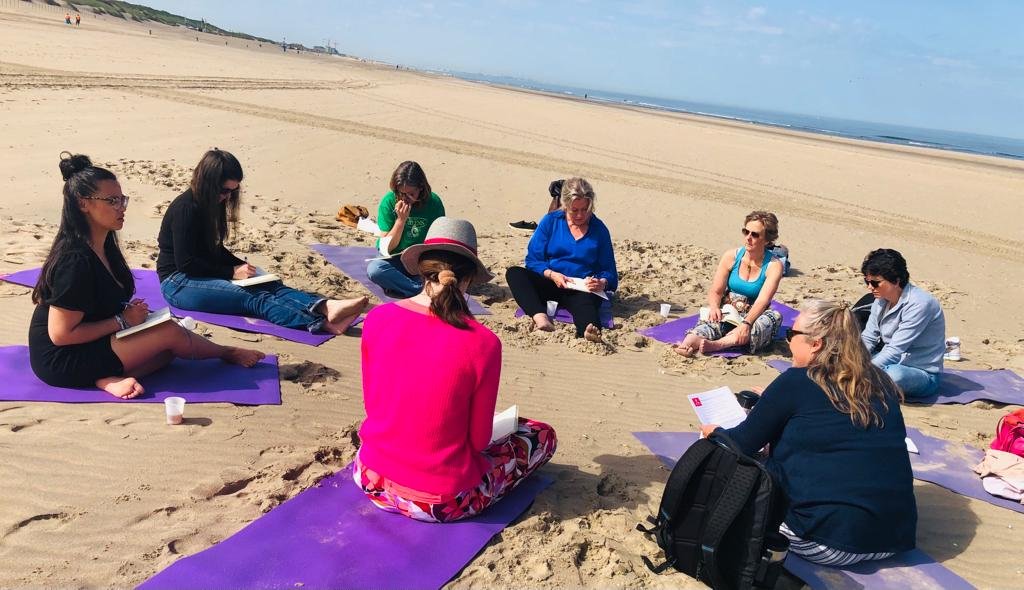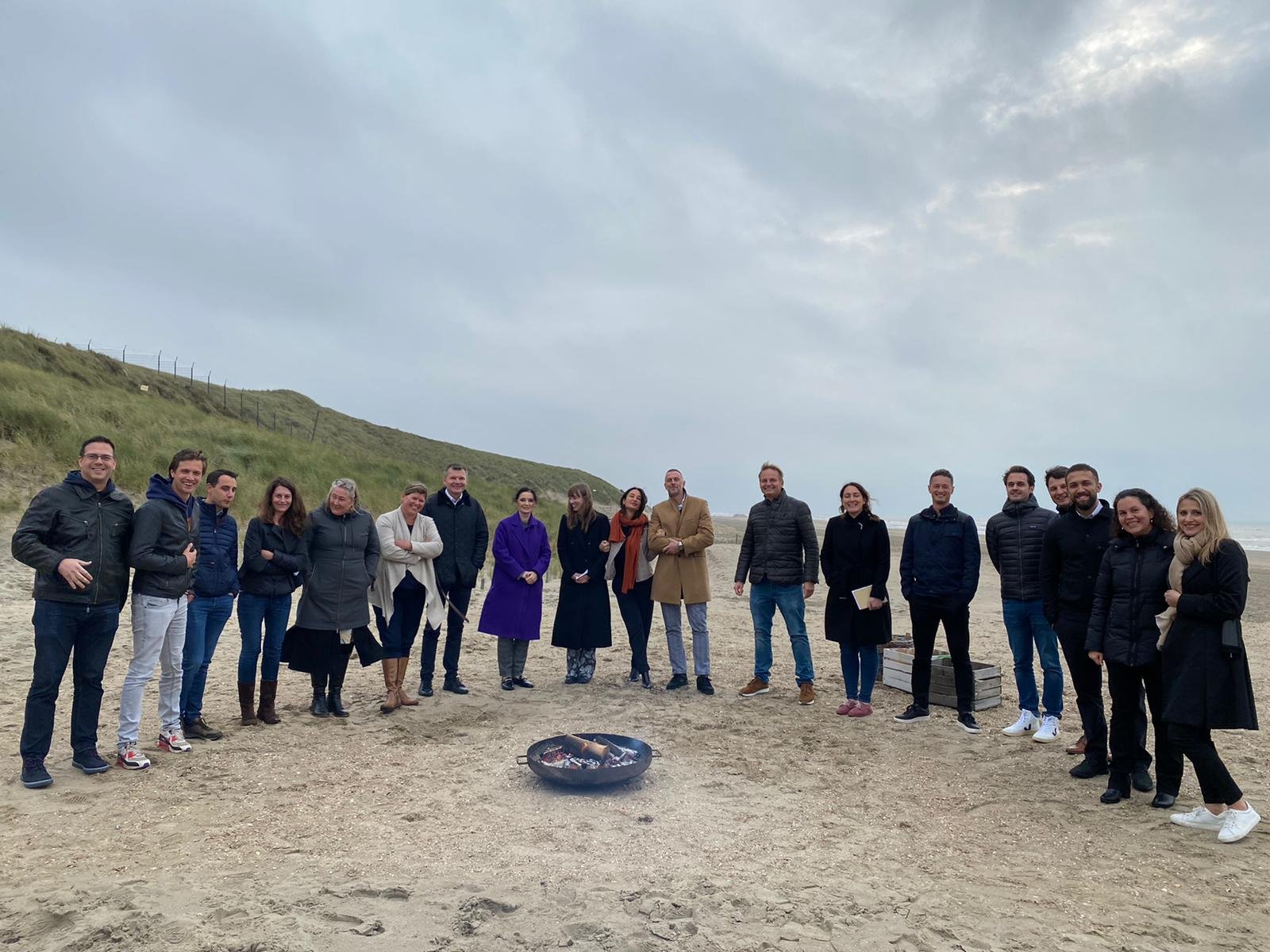
Our Earth
“A human being is a part of the whole, called by us universe, a part limited in time and space. He experiences himself, his thoughts and feelings as something separated from the rest, a kind of optical delusion of his consciousness. This delusion is a kind of prison for us, restricting us to our personal desires and to affection for a few persons nearest to us. Our task must be to free ourselves from this prison by widening our circle of compassion to embrace all living creatures and the whole of nature in its beauty.”
~ Albert Einstein
Our collective challenge
Our planet is a beautiful place. Our problem (‘our’ as in humanity) is a lot bigger than the one our planet is facing. We can easily forget how much our beautiful planet Earth has to offer, because we are constantly being reminded of the challenges we face daily, from inequalities to poverty to climate change. The complexity of these converging crises we are facing will not go away simply because we are overwhelmed by it.
We are faced with the challenge of collectively re-designing the human presence on Earth. And everybody has a role to play. Business is not being asked to deliver the SDGs alone, but the goals will not be achieved without a significant contribution from the private sector. The SDGs provide us with a framework to translate global needs and ambitions into business solutions. There are other frameworks, it doesn’t really matter, as long as we collectively go for Radical Transformation, allowing business to demonstrate leadership and apply its creativity to innovate for a more sustainable and inclusive future. NOW is the time for transforming humanity’s planetary impact from predominantly degenerative to regenerative! It is our generations, those alive today, who face the task of regenerating the healthy, life-supporting functions of marine and terrestrial ecosystems everywhere. In doing so we will create the basis for thriving local communities and vibrant circular bio-economies. We can create a fairer distribution of resources through widespread global-local collaboration while learning to live within planetary boundaries. This is the promise ahead, if we come together across sectorial, national and ideological divides to collaborate in implementing the United Nations 2030 Agenda for Sustainable Development at the local, regional and global scale. It is time to get to work – one community at a time!
This matters to each of us because we are all responsible for being a part of the change. Our actions today affect our children tomorrow. Everyone deserves a fair an equal chance in life. Through the goals, we can reach far and wide because the goals are universal. It’s also important to understand that these goals are interconnected. We cannot separate poverty from hunger, or education from women’s empowerment and so on. If we can grasp that, we are closer to understanding the needs that must be met, and in turn we are closer to achieving the 17 goals. It’s time to give back to the planet what the planet has given to us. It’s simple and there is no cost.
“To make the world work for 100% of humanity in the shortest possible time through spontaneous co-operation without ecological offense or the disadvantage of anyone.”
~ R. Buckminster Fuller
’Otto Scharmer shares his inspiring view in his book ‘Leading from the emerging future’: ‘This process of co-creating disruptive change is not a singular, isolated case. The change makers embarking on these journeys venture away from well-known paths and put themselves at the edges of the unknown. The movement also includes a new breed of business entrepreneurs who create ‘hybrid’ business enterprises that aim for a triple bottom line, combining profitability with a social mission and environmental objectives. This new global movement has no name, no leader, no ideology, no single program, no single center. Instead people are sharing a new interior field, an emerging field of connection and consciousness, a collective concern about the well-being of all living beings, including our planet.'
We are in a conceptual emergency! To respond wisely to these extraordinary times and make it through the proverbial eye of the needle requires us to change. We need to change the way we think about who we are, what we are here to do, and where are we going. Science is now revealing from diverse perspectives a structure of reality that is not dissimilar from those described in humanity’s ancient wisdom traditions. We are (re)discovering the fundamentally interconnected nature of life as fluid networks of relationships that form temporarily coherent identities which can interact with each other and are in themselves expressions of life as a planetary and fundamentally interconnected process.
The Sustainable Development Goals (SDGs) can be used to transform your organisation and align your sustainable ambitions with an internationally recognised and applied framework. The UN vision is that by 2030, the world should be transformed by the 2030 Agenda for Sustainable Development.
Consumers, investors and governments are increasingly paying attention to the role that organisations play in the world. What difference do they make? How do they protect the environment? How do they solve real world problems for people and society? What value do they create, beyond financial returns? Embedding the SDGs into your organisation and culture will help you to identify new opportunities, increase trust, reduce cost and lower your risk exposure. Many organisations are discovering that purpose and profit go hand in hand.
The Inner Development Goals
In 2015, the Sustainable Development Goals (SDGs) gave us a comprehensive plan for a sustainable world by 2030.
Although we have accumulated much knowledge about the climate crisis, poverty, public health, and other social ills communicated in the SDGs, we seem to lack the inner capacity to deal with our increasingly complex environment and challenges. Progress is not happening fast enough, and we urgently need to increase our collective abilities to face and work effectively with complex challenges.
We have a vision of what needs to happen, yet progress towards this vision has been disappointing as technical solutions and public policy, which comprise the majority of approaches today, are insufficient on their own.
What has been largely missing from current strategies is a keen insight into which abilities, qualities or skills we need to develop among individuals, groups and organisations that play crucial roles in working to fulfil the SDGs.
Fortunately, modern research shows that the inner abilities we require to complement and accelerate our external approaches can be developed. This was the starting point for the Inner Development Goals (IDG) initiative.
Over a number of years, many different organisations interested in the connection between inner development and outer sustainability have been on a learning journey together. This has included a few public events like the MindShift Digital Conference in April 2020 at the Stockholm School of Economics, where the IDG initiative was first introduced. On 12th of May 2021 the IDG framework, co-created by 1000+ scientists, experts and HR & Sustainability professionals was made available open source for the world.
What VivU BuntU can offer you in our collective service to our Earth:
Let’s co-create!
Creative explorations and workshops to increase awareness around the SDG’s and IDG’s
Organise the SDG quiz with me as a taster for your people!
Purpose sessions: integrating the SDG’s in your relevant, inspiring, impactful purpose
Cultural values assessments connecting your company culture to the SDG’s and/or IDG’s
And all kinds of co-creations that we can together imagine, combining the SDG’s, IDG’s, creative and regenerative leadership, values and purpose in it. You are very welcome to connect and explore together how we can increase your impact!
Free resources
Link naar reports The Netherlands (Dutch): https://www.sdgnederland.nl/rapporten-documenten/
https://www.pwc.nl/nl/actueel-publicaties/assets/pdfs/pwc-sdg-booster-2019.pdf
https://www.cbs.nl/en-gb/publication/2018/10/the-sdgs-the-situation-for-the-netherlands
MOOC RSM: https://www.coursera.org/learn/sdgbusiness/
Business & SDG book: https://www.rsm.nl/fileadmin/Images_NEW/Positive_Change/Business_and_Sustainable_Development_Goals_-_Positive_Change_0_Rob_van_Tulder.pdf
SDG selector: https://dm.pwc.com/SDGSelector/
SDG tracker (progress on SDG’s) https://sdg-tracker.org/quality-education#targets









